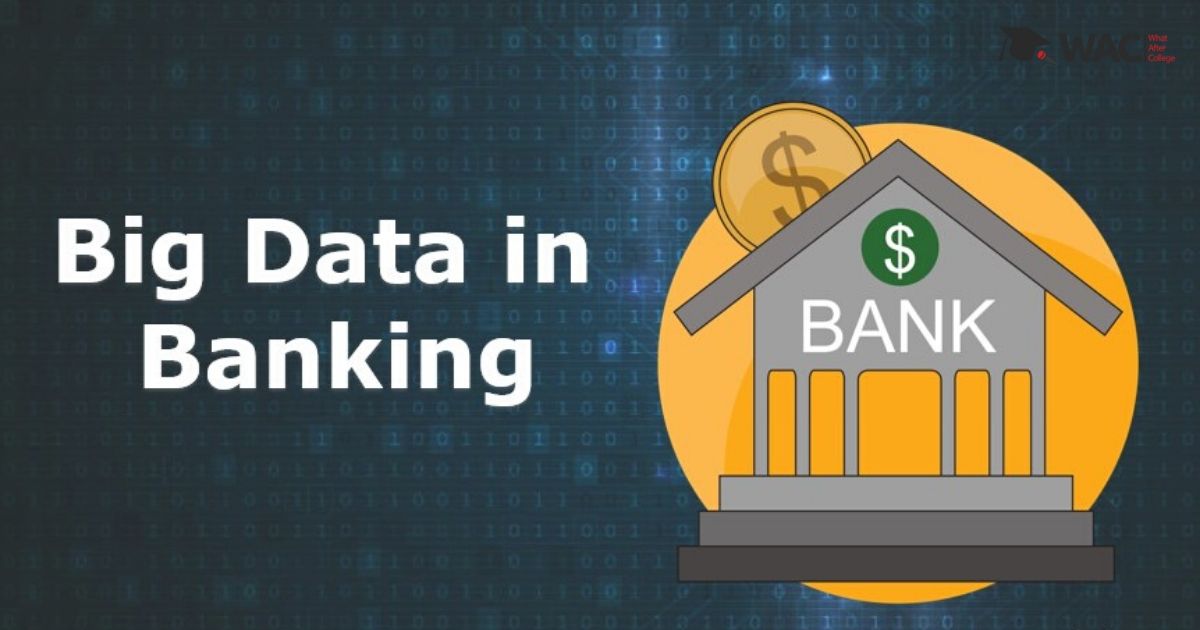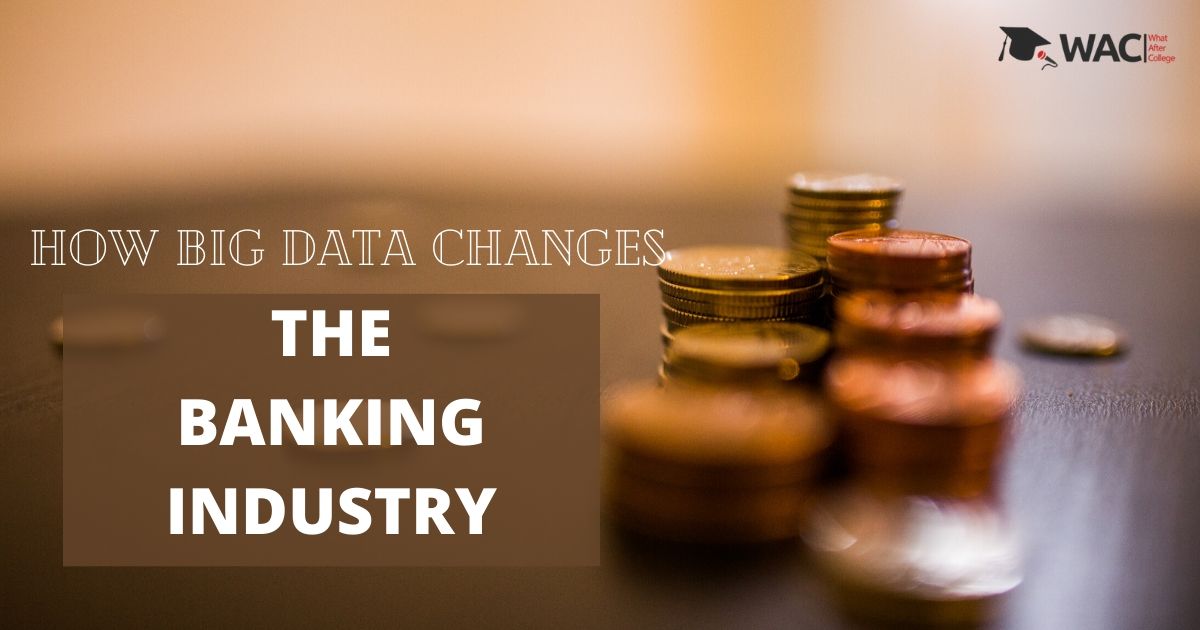Indeed, today big data is being unleashed across many different walks of life and dramatically transforming the way the world works.
Nevertheless, many industries have now realized the potential of big data. According to a recent study, the global revenues for big-data and business-analytics solutions will reach $260 billion by 2022. With a compound annual growth rate (CAGR) of 11.9 percent over the 2017-2022 forecast period. Moreover, the use of big data in the banking industry is increasing rapidly, making it the principal driver of this growth.
The banking industry is the best example of how technology has changed the customer experience and has evolved by leaps and bounds over the past decades.
The financial organizations are already one of the world’s most data-driven sector. Banks generate enormous quantities of customer data at hand, including through KYC (know your customer) compliance checks, customer activity at ATMs (automated teller machines), point-of-sale purchases, and online banking profiles. Big data analytics is essentially important to the banking industry because it deals with a large amount of data every day
Advantages of Big Data for the Banking Industry

In the world where information is the driving force, Big Data is being rapidly adopted by banking and financial industries. Proper implementation of data analytics enables the organization to use the tons of information, comes through transactions, for improvement and growth of businesses. Banking clients create a galactic measure of data consistently through millions of transactions every day. This data falls under the umbrella of big data and holds the undiscovered potential for banks and other financial foundations. Also, they need to understand their client base, product execution, and market patterns. This is why the use of big data in the banking industry plays an important role.
Below are the primary benefits of leveraging big data analytics in banking,
Provides Personalized Banking Solutions To Customers
Combined with efficient tools and technologies, big data can provide banks with a better understanding of individual customers based on the inputs received. This includes their investment patterns, shopping trends, motivation to invest, and personal or financial backgrounds. For example, by having a complete customer profile and data, they can predict and prevent churn. Also, find the best way to fix existing problems.
The banking industry uses big data to get to know their users. As a result, they develop products, services, and other offerings tailored to their specific needs based on existing customer profiles.
Customer Segmentation
The benefit of customer segmentation is that it allows banks to better target their clients with the most reasonable marketing campaigns. These campaigns are then made to cater to their requirements in a more meaningful way.
Applying machine learning and Artificial Intelligence along with big data, banks will get valuable insights into user behavior. Additionally, it helps them to optimize their customer experience accordingly. Moreover, by being able to track and trace every customer transaction, banks will be able to categorize their customers based on various parameters, such as preferred credit card expenditures, or even net worth.
Effective Customer Feedback Analysis
Big Data tools can provide banks with their customer questions, comments, and concerns, through feedbacks. This feedbacks help them respond in a timely manner. Customers, when feeling that their banks value their feedback and communicate with them promptly, will remain loyal to the particular organization.
Better employee performance and management
By keeping up with big data analytics, chief executives of organizations can get a birds-eye-view on the branch’s performance. This means better visibility into the day-to-day operations. Also, an elevated ability to proactively solve any issues, including. customer acquisition and retention, employee efficiency and turnover, etc. The use of big data in the banking industry is relentlessly growing.
Information from big data technologies can give banks, a valuable insight into user behavior. Furthermore, it will help them optimize their customer experience accordingly. For example, by having a complete customer profile and data on product engagement at hand, they can predict and prevent churn and find the best way to fix existing problems.
Fraud Detection & Prevention
One of the biggest problems faced by the banking sector today is to identify fraud and prevent dubious transactions. Big Data in banking allows them to make sure that no unofficial transactions will be made. Also, it will ensure the safety and security of the entire banking industry. Moreover, by Monitoring customer spending patterns and identifying their unusual behavior, banks can leverage big data to prevent frauds and make customers feel more secure.
conclusion
The use of Big Data in the banking industry is taking a massive step towards evolution. By aligning with the Big Data, sooner banks will be able to provide more improved services, in a timely manner, with optimized operational costs. Adopting Big Data practices, they will be able to unlock the benefits this technology brings to their business.
All you need to know about Big Data
| Introduction to Big Data | Career Options after Big Data |
| 4 V’s of Big Data | Big Data for Business Growth |
| Uses of Big Data | Benefits of Big Data |
| Demerits of Big Data | Salary after Big Data Courses |
Learn Big Data
| Top 7 Big Data University/ Colleges in India | Top 7 Training Institutes of Big Data |
| Top 7 Online Big Data Programs | Top 7 Certification Courses of Big Data |
Learn Big Data with WAC
| Big Data Webinars | Big Data Workshops |
| Big Data Summer Training | Big Data One-on-One Training |
| Big Data Online Summer Training | Big Data Recorded Training |
Other Skills in Demand
| Artificial Intelligence | Data Science |
| Digital Marketing | Business Analytics |
| Big Data | Internet of Things |
| Python Programming | Robotics & Embedded System |
| Android App Development | Machine Learning |

